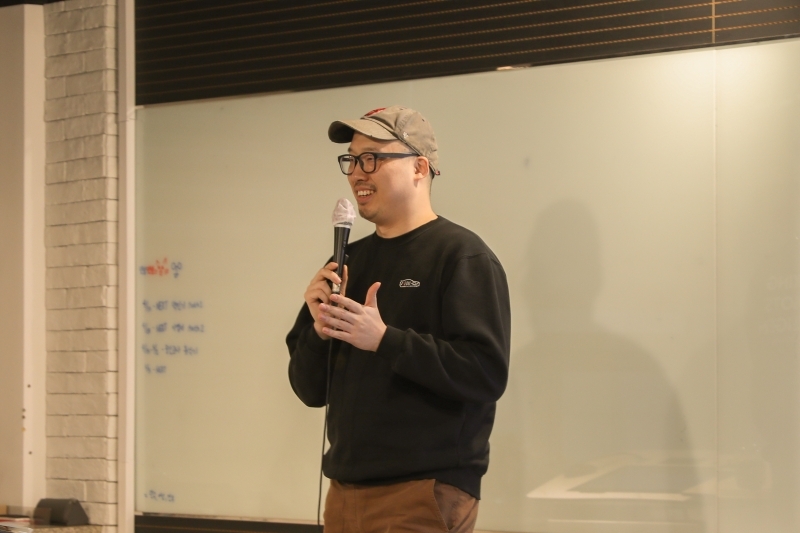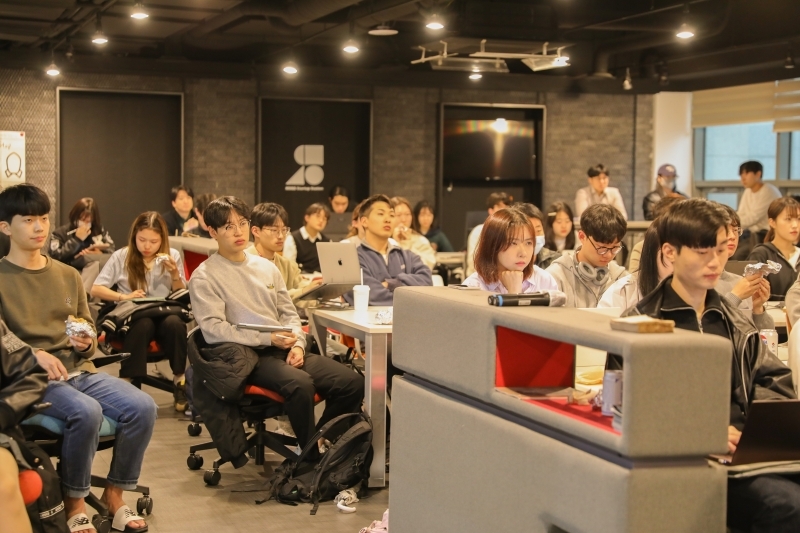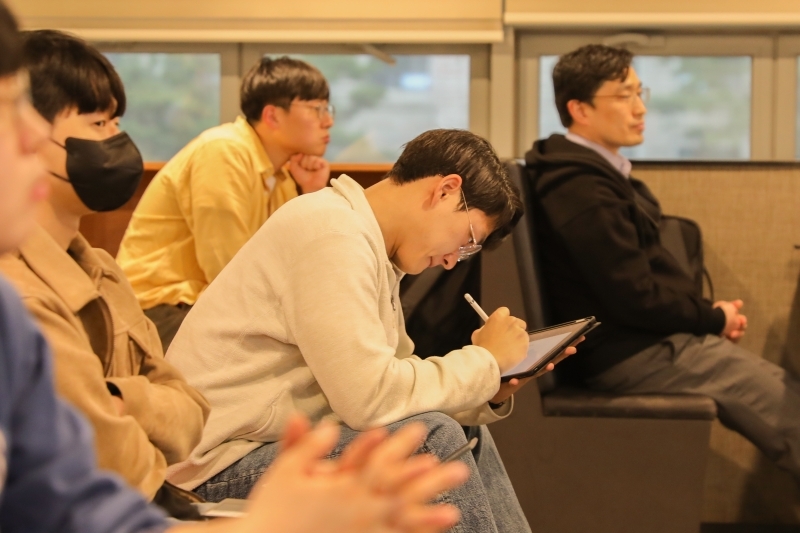News
KUBS News
"Target the global market"... Entrepreneurship Academy Special lecture by Seoul Robotics CEO
2023.05.11 Views 3092 국제실
"Target the global market"... Entrepreneurship AcademySpecial lecture by Seoul Robotics CEO, Lee Han-bin
On April 11th, The Entrepreneurship Academy (hereinafter referred to as the lecture) for the 2023-1 semester, hosted by the Startup Research Institute (Director= Moon Jeong-bin) of the KUBS (Dean= Kim Sang-yong), was held at The Stage on the second floor of the KUBS Main Building. The lecture was given by Lee Han-bin, CEO of Seoul Robotics, on "Going to Nasdaq to Solve the Low Birthrate Issue". Seoul Robotics is a tech startup founded in the field of 3D computer vision software that analyzes 3D sensors with machine learning under the vision of "Making Robots Intelligent".

First, CEO Lee Han-bin began the lecture by saying, "I came to Korea University because we don’t have any developers from Korea University in Seoul Robotics." He then revealed the reason why Seoul Robotics entered Nasdaq, which was because they wanted to create a structure where a Korean company serves as the parent company and generates revenue from overseas to bring the revenue back to Korea. He said that many companies that can target the global market are needed for Korea to survive, saying that “While ESG is drawing attention these days, I wonder what ESG can be more important than this.”
Therefore, CEO Lee Han-bin looked for a startup item that could increase revenue overseas and target the global market. He said, "What I wanted to say is that we should increase revenue overseas to overcome one of Korea's problems, the low birthrate," and added, "The mindset that 'we need to go global for the future of Korea' is still sound."

CEO Lee Han-bin prepared a short lecture and a long Q&A session for students who hope to start a startup. After CEO Lee Han-bin's lecture, students asked questions about startups, employment, and other related topics, and the Q&A session is summarized and introduced below.
Q. From the difficult times you shared today, do you have a memorable pain point?
A. Our latest investment was finalized in September last year, but we started fundraising in January. At the time, the market was good and we received many investment promises. However, as the economy worsened, we were unable to receive any investments and had to finance the company through personal loans. Fortunately, we have now received investment and our company is in a stable situation. Another difficult moment was when a developer who we tried to scout for three months chose to work for a large corporation instead of our startup. I would like to say it was challenging to compete with big companies when attracting competent employees.
Q. After taking Professor Moon Jung-bin's International Management class, it seems challenging to "work together" with team members from diverse countries.
A. Seoul Robotics is located in Korea, and 60% of our employees are Korean. To address this issue, we use English as our common language, which enables us to respect different cultures and create a horizontal organizational culture.

Q. I'm curious about stories of how you acquired technology ahead of others.
A. Firstly, the community is essential. There are many successful startup cases where people get ahead of the trend by meeting others in various communities. Apple, for instance, is a good example of this. It's crucial to meet people in existing communities rather than studying alone. If there are no existing communities, creating one is also important.
Q. What are the marketing techniques that startups can use to attract investments?
A. The most crucial point is to win the game even before the meeting. Investors already know about our company before meeting us. How did we make this possible? This can be achieved through "branding." I believe Seoul Robotics did a great job with branding. It gained a lot of exposure in the media, which created a buzz among investors.

Q. Please explain your ultimate goal in detail.
A. Many people here don't have the desire to get married or have children later in life. The reasons are there's no one to raise children with and it is said to cost nearly one billion won to raise a child. However, Silicon Valley has a relatively high birth rate. Firstly, because of high salaries. With higher salaries, people can utilize various policies to raise children. The US has a strong babysitting culture and has daycare centers that relatively reduce the stress of childcare. I think reducing the stress due to childcare is a way to increase the birth rate.


